Food Loss Related News
Food Loss Related Publications

Food Loss Analysis e-learning course
01/01/2018
This e-learning course introduces the FAO Case study methodology for the analysis of critical food loss points. This method focuses on revealing and analyzing the multidimensional causes of losses in selected food supply chains, identification of critical loss points, and recommendation of feasible food loss reduction solutions and strategies. It...
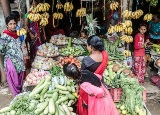
Case studies on managing quality, assuring safety and reducing post-harvest losses in fruit and vegetable supply chains in South Asian Countries
01/01/2018
Fresh fruits and vegetables contribute significantly to food and nutrition security, poverty reduction and to economic development in the countries belonging to the South Asian Association for Regional Cooperation (SAARC). Smallholders who make little use of post-harvest technologies produce most of the fresh fruits and vegetables supplied to mass markets.

Recommendations on the design of a harvest and post-harvest loss statistics system for food grains (cereals and pulses)
01/01/2018
Guidelines on the measurement of harvest and post-harvest losses. The testing of measurement methods on crop losses at farm level is necessary to assess their relevance, cost-efficiency and replicability, before recommending them to countries. The pilot survey undertaken in Ghana and described in this document concerns measurement of post-harvest losses (PHL) on the farm.
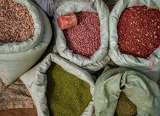
AU Commission Post-harvest Loss Management Strategy
01/01/2018
At its 23rd Ordinary Session of the African Union Assembly held in Malabo, Equatorial Guinea, in June 2014, Heads of State and Government adopted eight commitments that now make up the ‘Malabo Declaration on Accelerated Agricultural Growth and Transformation for Shared Prosperity and Improved Livelihoods’. Among the many targets that...
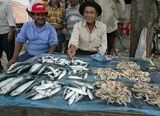
An innovative way of fish drying and smoking: FAO Thiaroye Processing Technique (FTT-Thiaroye)
15/12/2017
Introduction and trial a new cost effective method of fish smoking and drying which will reduce post-harvest losses, add value to the finished product and increase its shelf life.

The Reality of Food Losses. A New Measurement Methodology
01/12/2017
Despite the presumed importance of food loss, figures regarding food loss remain highly inconsistent, precise causes of food loss remain undetected, and success stories of decreasing food loss remain few. We improve over this measurement gap on food losses by developing and testing the methodology traditionally used with three new methodologies that aim to reduce the measurement error and that allow us to assess the magnitude of food loss.

Policy Measures for managing quality and reducing postharvest losses in fresh produce supply chain in South Asian countries.
01/10/2017
Smallholders and traders are key stakeholders in fruit and vegetable supply chains supplying local mass markets across South Asian countries. Training these stakeholders and introducing simple technical innovations into these supply chains can dramatically improve the quality and shelf-life of fresh produce and reduce losses, thereby generating economic benefits for...

Review: Food loss and waste in Sub-Saharan Africa
01/07/2017
The research, development practitioner, and donor community has begun to focus on food loss and waste – often referred to as post-harvest losses (PHL) – in Sub-Saharan Africa. This article reviews the current state of the literature on PHL mitigation.
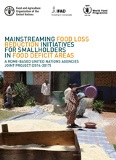
Mainstreaming food loss reduction initiatives for smallholders in food deficit areas (Phase 1)
01/07/2017
The “Mainstreaming food loss reduction initiatives for smallholders in food deficit areas” project, implemented by the Rome-Based UN Agencies (RBA) funded by the Government of Switzerland aims to improve food security and income generation opportunities through reduction of food losses in supported food grains and pulses value chains.

Reducing post-harvest losses in fruits and vegetables in South Asian countries
30/06/2017
An FAO project aimed to pilot the implementation of good post-harvest management practices to manage quality, assure safety and reduce losses in prioritized traditional fruit and vegetable supply chains with stakeholders, in order to generate evidence to support the uptake of the improved practices.

Postharvest loss assessment of maize, wheat, sorghum and haricot bean
01/06/2017
The postharvest loss (PHL) assessment was conducted using FAO methodology, which involves preliminary screening, survey, load tracking and sampling assessment and solution finding.
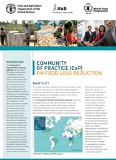
Community of Practice on food loss reduction
01/06/2017
Community of Practice on food loss reduction flyer to explain how the CoP serves as a convener of knowledge and experience and for networking between different actors and institutions.
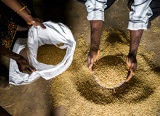
The strategic grain reserve for your living room
26/05/2017
In 2013, the World Food Programme (WFP) launched its Zero Food Loss Initiative, piloting the use of airtight storage technologies with farmers in Africa. The program subsidizes the purchase of polypropylene bags and plastic or metal silos and provides training for farmers on the use of these products and storage technologies.
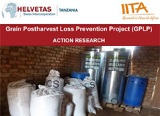
In-farm comparison trial conducted by HELVETAS-GPLP in partnership with IITA Tanzania
01/01/2017
The effectiveness of different storage technologies for maize under conditions of smallholder farmers were tested in Dodoma and Manyara regions of central Tanzania. Seven storage methods including the use of different hermetic storage containers (metal silos and plastic barrels with and without fumigation with phostoxin, PICS bags) and non-hermetic polypropylene bags.
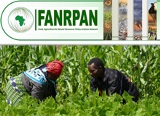
Integrating Gender Roles, Social Equity and Post Harvest Management Policies to Improve Rural Household’s Food Security
01/01/2017
This policy brief describes the current status of policies and programs in Benin and Mozambique, with the aim of identifying potential gender and social sensitive post-harvest initiatives, thereby supporting their transition to a more sustainable and inclusive food security economy.
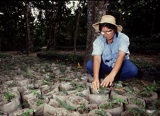
Postharvest losses of perishables in Brazil: what do we know so far?
01/01/2017
Although difficult to pin down an exact figure, the idea that postharvest losses (PHL) of perishables in Brazil stand at 30-45% has been widely accepted. In spite of the modernization of production systems and the logistics and distribution of perishables in the last decades, postharvest losses continue to be a...
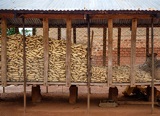
Scaling adoption of hermetic postharvest storage technologies in Uganda.
01/01/2017
In 2015, researchers in the MIT Comprehensive Initiative on Technology Evaluation (CITE) conducted a study to better understand the scalability of improved post-harvest storage technologies. The study focused on the World Food Program (WFP) Special Operation 200617 (SO1) in Uganda, which aimed to address post-harvest losses through improved post-harvest handling...
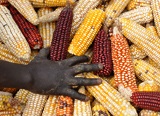
Field efficacy of hermetic and other maize grain storage options under smallholder farmer management
01/01/2017
Household grain storage continues to be of paramount importance in improving food security in sub-Saharan Africa (SSA) where maize post-harvest losses of 10–20% are reported. On-farm trials to compare alternative solutions for reducing household maize storage losses were conducted in the 2014/15 and 2015/16 storage seasons in two contrasting agro-ecological zones in the Hwedza district of Zimbabwe.

Food losses and waste: how Brazil is facing this global challenge?
01/01/2017
By 2017, Brazil seems to have finally awakened to the problem of food loss and waste. In this article, we resume the topic started in the article “Postharvest losses of perishables in Brazil: what do we know so far?”

Etat des lieux sommaire des pertes post récolte au niveau des filières tomate, ananas et pisciculture au Bénin
01/01/2017
Dans sa logique de facilitation des relations d’affaires entre ses différentes institutions et partenaires, l’ambassade des Pays Bas près le Bénin a servi de pont pour établir la collaboration entre le programme ACMA, Post Harvest network (PHN) et le réseau AgriProFocus (APF). L’objectif de cette mise en relation est d’explorer...
